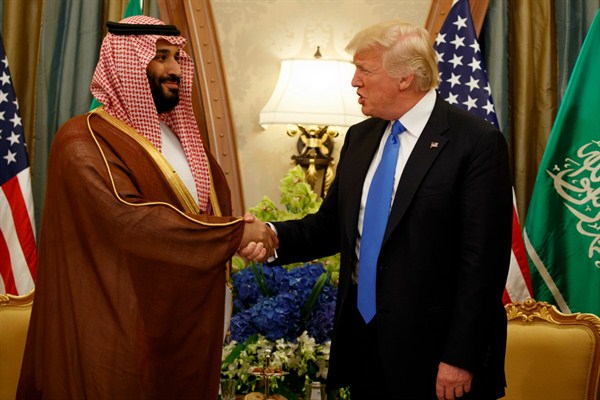Amid all the focus on whether the Trump administration will recertify the 2015 Iran nuclear deal, Iran’s regional rival, Saudi Arabia, has rekindled nuclear ambitions of its own. Later this month, Saudi Arabia will announce the winner of a multibillion-dollar contract to build the nation’s first two nuclear reactors, set to be constructed along the Persian Gulf. A U.S. consortium is competing with many others in what has become a geopolitical contest, but not without controversy.
The United States has participated in over 100 nuclear deals like this before, so what makes one with Saudi Arabia so divisive? Riyadh wants to retain uranium enrichment capabilities, an essential feature of building nuclear weapons that caused so much concern in Iran’s hands. Wary of igniting a regional arms race, the U.S. is hesitant to drop its safeguard clauses meant to keep civil nuclear technology from being used for military purposes, which would mean in effect bending the rules for Saudi Arabia. But insisting on tighter restrictions would likely drive Saudi Arabia into the arms of a Chinese or Russian bidder who would not require such stringent modifications to its reactor to address nonproliferation concerns. In addition, as a result, the already-lagging American nuclear sector would lose another business opportunity.
For all the controversy around the reactor contracts, Saudi Arabia’s desire to seek nuclear energy is nothing new. In 2008, the U.S. struck a deal with the kingdom to pursue nuclear energy strictly for civilian use. Since then, however, Riyadh has backed away from agreed stipulations, and in late 2017, Saudi Energy Minister Khalid al-Falih said he expected to sign contracts for the construction of two nuclear reactors by the end of 2018. Now, as U.S. Secretary of Energy Rick Perry plans his second trip to Saudi Arabia in just three months, and Saudi Crown Prince Mohammed bin Salman prepares to embark on a multi-week tour of the United States later this month, the stage is set for a consequential deal.

